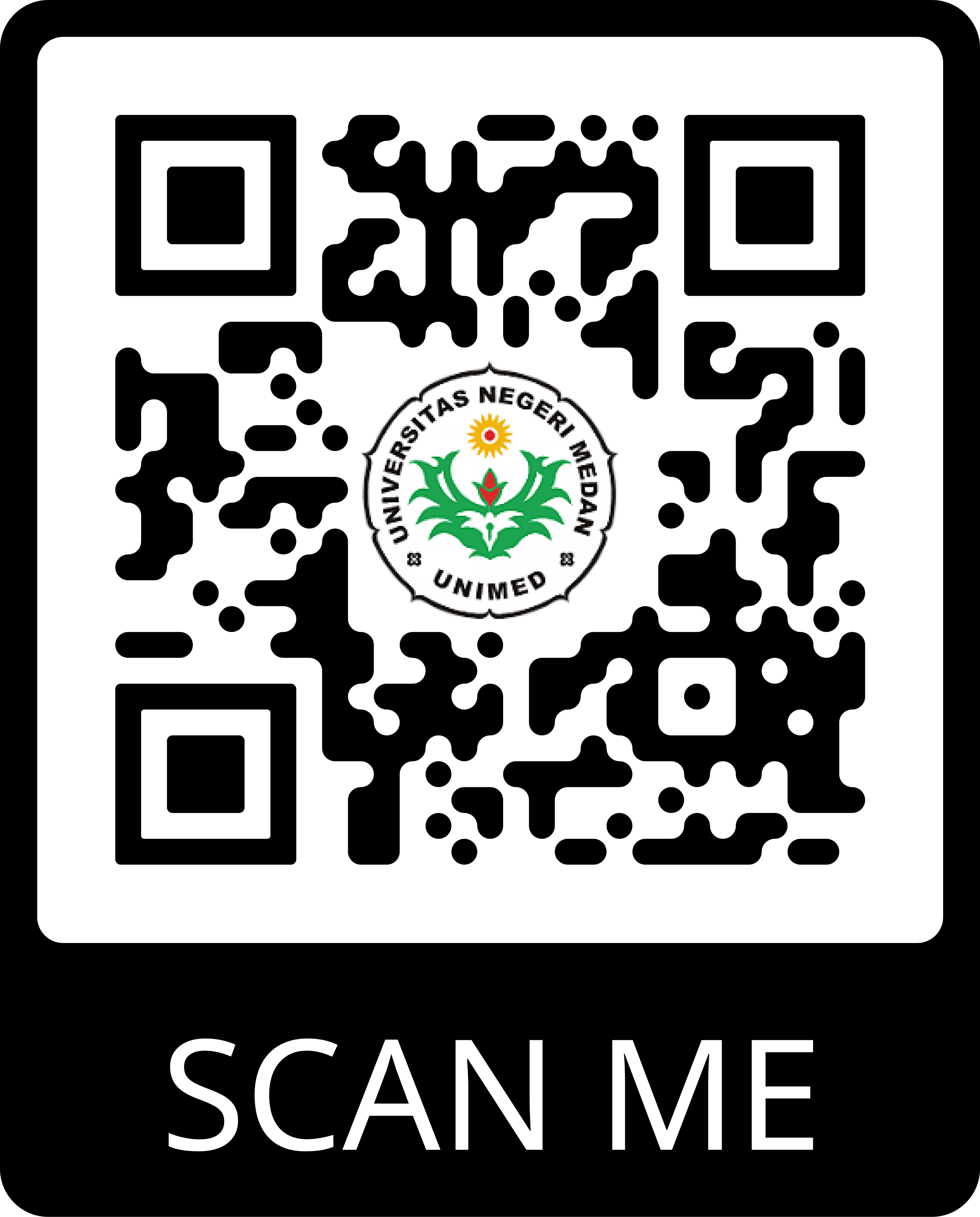DEVELOPING TEACHING MATERIAL FOCUS ON WAVE SUBJECT USING PISA (PROGRAMME FOR INTERNATIONAL STUDENT ASSESSMENT) ON UNDERGRADUATE DEGREE PROGRAMS IN PHYSICS
Abstract
Indonesian students' competence in solving PISA literacy-based science questions is still relatively low compared to ASIA countries and even ASEAN countries. The research aims to develop wave material teaching materials based on PISA literacy for basic Physics courses in the Unimed Physics Study Program in the first semester of 2019/2020. This type of research is a research development using the stages of Analyze Design Develop Implement Evaluate (ADDIE). PISA-based competencies include competency in explaining science phenomena, competence in evaluating and designing science experiments and competence in interpreting the data from science experiments. In the analysis phase it was found that the available wave teaching materials did not fully support the demands of PISA competence. At the design stage, wave teaching materials are arranged by emphasizing the achievement of PISA competencies. At the development stage of the teaching material is validated by the material expert and revised according to expert input. At the implementation stage, teaching materials were tested on a small group of students and revisions were made to the material aspects of the competence of scientific inquiry and data interpretation in accordance with the difficulties found in the field. At the evaluation stage teaching materials are applied to undergraduate students in Physical Education. Results obtained: there was an increase in student responses and PISA-based competencies after using the developed wave teaching materials
Keywords
Full Text:
PDFReferences
DAFTAR PUSTAKA
Barniol, P., Zavala, G. (2016). Mechanical Waves Conceptual Survey: Its Modification And Conversion To A Standard Multiple-Choice Test. Physical Review Physics Education Research 12, 010107.
Basl, J. (2011). Effect of School on Interest in Natural Sciences: A comparison of the Czech Republic, Germany, Finland, and Norway based on PISA 2006. International Journal of Science Education Vol. 33, No. 1, pp. 145–157.
Branch, R.M. (2009). Instructional Design:The ADDIE Approach. New York: Springer Science Business Media.
Drechsel, B., Carstensen, C., & Prenzel, M. (2011). The role of content and context in PISA interest scales – A study of the embedded interest items in the PISA 2006 Science assessment. International Journal of Science Education, Volume 33, Number 1, 73-95
Duschl, R. (2007). Science Education in Three-Part Harmony: Balancing Conceptual, Epistemic and Social Learning Goals. Review of Research in Education, 32, 268-291.
Gott, R., Duggan, S., & Roberts, R. (2008). Concepts of evidence. University of Durham. Downloaded dari http://www.dur.ac.uk/rosalyn.roberts/Evidence/cofev.htm, Sept 23, 2012.
Litbang Kemendikbud download dari http://litbang.kemdikbud.go.id/index.php/survei-internasional-pisa (17/11/2015).
Mesic, V., Hajder, E., Neumann, K., and Erceg, N. (2016). Comparing different approaches to visualizing light waves: An experimental study on teaching wave optics. Physical Review Physics Education Research 12, 010135.
Millar, R., Lubben, F., Gott, R., & Duggan, S. (1995). Investigating in the school science laboratory:conceptual and procedural knowledge and their influence on performance. Research Papers inEducation, 9(2), 207-248.
National Research Council. (2000). Inquiry and the National Science Education Standards. WashingtonD.C.: National Academy Press.
OECD (Organisation for Economic Co-operation and Development). (2006). Assessing scientific,reading and mathematical literacy: A framework for PISA 2006. Paris: Author.
OECD. (2006). The PISA 2006 Assessment Framework for Science, Reading and Mathematics. Paris:OECD.
OECD (2009). PISA 2006 Technical Report. Paris: OECD
OECD (2013). What kinds of careers do boys and girls expect for themselves? PISA in focus. Paris:OECD.
Podolefsky, N.S., & Finkelstein, N.D. (2007). Analogical scaffolding and the learning of abstract ideas in physics: An example from electromagnetic waves. Physical Review Special Topics - Physics Education Research 3, 010109.
Suprapto, N., (2016). What should educational reform in Indonesia look like? Learning from the PISA science scores of East-Asian countries and Singapore. Asia-Pacific Forum on Science Learning and Teaching, 17(2), Article 8, p.1.
DOI: https://doi.org/10.22611/jpf.v8i2.15087
Article Metrics
Abstract view : 377 timesPDF - 584 times
Refbacks
- There are currently no refbacks.
Copyright (c) 2019 Dr. Wawan Bunawan M.Si., M.Pd, Sahyar Sahyar

This work is licensed under a Creative Commons Attribution 4.0 International License.
___________________________________________________________________________________________________________________________________________
Jurnal Pendidikan Fisika
p-ISSN : 2252-732X | e-ISSN : 2301-7651
Organized by The Magister of Physics Education Departement in State University of Medan in collaboration with Physical Society of Indonesia (PSI)
W: https://jurnal.unimed.ac.id/2012/index.php/jpf/index
E : jpfunimed@unimed.ac.id
rajo.hasim@gmail.com (principal contact)

_____________________________________________________________________________________________________________________________________________

This work is licensed under a Creative Commons Attribution 4.0 International License.





